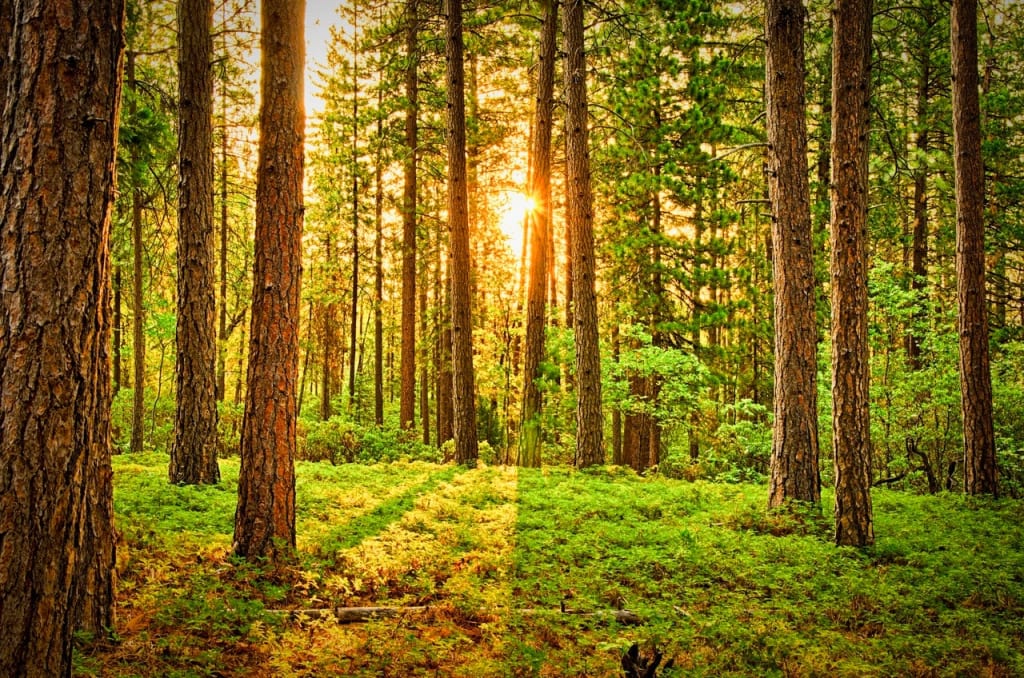Forests: The Lifelines of Our Planet
The economic importance of forests extends far beyond their natural beauty and environmental benefits. This subject sheds light on the often-unseen wealth that forests hold and explores their crucial role in supporting economies worldwide. From job creation and sustainable industries to ecosystem services and tourism revenue, forests offer a plethora of economic opportunities that are essential for a thriving society.

Introduction:
Forests are the verdant lungs of our planet, covering vast expanses of land and supporting an astonishing array of life. These majestic ecosystems provide essential services, including oxygen production, carbon sequestration, habitat preservation, and water regulation. In this article, we delve into the captivating world of forests, exploring their biodiversity, ecological importance, and the urgent need for their conservation in the face of environmental challenges.
Biodiversity and Ecosystems:
Forests are teeming with biodiversity, housing an astounding array of flora and fauna. From towering trees to delicate ferns, from elusive mammals to vibrant bird species, forests harbor an intricate web of life. They provide habitats for countless organisms, promoting species diversity and enabling complex ecological interactions.
Forest ecosystems are finely balanced, with each organism playing a crucial role. Trees, through the process of photosynthesis, absorb carbon dioxide and release oxygen, vital for sustaining life on Earth. Forests also serve as a habitat for innumerable species, supporting food chains, pollination, and nutrient cycling. The intricate interconnections within forest ecosystems create a delicate balance that is essential for the overall health of the planet.
Ecological Services of Forests:
Forests provide a wide range of ecological services that are fundamental to the well-being of our planet and its inhabitants. One of the most critical services is oxygen production. Through photosynthesis, trees convert carbon dioxide into oxygen, replenishing the atmosphere and helping to regulate the global climate.
Furthermore, forests act as carbon sinks, sequestering vast amounts of carbon dioxide. This process helps mitigate climate change by reducing greenhouse gas emissions and buffering the impacts of human activities. Forests also play a significant role in regulating water cycles, acting as natural filters and preventing soil erosion. They contribute to the maintenance of water quality, control floods, and recharge groundwater reserves.
Importance of Forest Conservation:
The conservation of forests is of paramount importance for the sustainability of our planet. However, forests face numerous threats, including deforestation, illegal logging, habitat fragmentation, and climate change. These activities result in the loss of biodiversity, disruption of ecosystems, and increased vulnerability to natural disasters.
Efforts to conserve forests involve a range of strategies, including protected areas, sustainable forest management practices, reforestation, and community-based initiatives. Forest conservation not only safeguards biodiversity but also supports the livelihoods of local communities, promotes sustainable development, and contributes to climate change mitigation and adaptation.
Forests and Indigenous Communities:
Indigenous communities have long-standing connections to forests and possess traditional knowledge that is vital for their preservation. These communities often have sustainable practices and deep spiritual and cultural bonds with forest ecosystems. Recognising and respecting their rights and engaging them in forest management is crucial for successful conservation efforts.
The Future of Forests:
As the world grapples with pressing environmental challenges, the future of forests is at a critical juncture. Conservation efforts, sustainable land-use practices, and global cooperation are essential for ensuring the continued existence and health of forests. It is crucial to strike a balance between human needs and the preservation of these vital ecosystems.
The Economic Value of Forests: Beyond Trees and Timber
Forests possess not only ecological significance but also hold immense economic value. This heading explores the multifaceted economic contributions of forests beyond their tangible products such as timber. From job creation and tourism revenue to ecosystem services and sustainable industries, forests play a pivotal role in supporting economies at local, national, and global levels.
Job Creation and Livelihoods:
Forests are major sources of employment and livelihoods for millions of people worldwide. From forestry professionals and timber harvesters to ecotourism guides and forest-dependent communities, forests provide diverse job opportunities. Sustainable forest management practices generate jobs throughout the value chain, including forest planning, tree planting, harvesting, processing, and marketing. Additionally, indigenous and local communities often engage in traditional forest-based activities, such as gathering non-timber forest products, which contribute to their economic well-being.
Ecosystem Services and Economic Benefits:
Forests offer a wide range of ecosystem services that have direct economic benefits. Carbon sequestration and climate regulation services contribute to global efforts to combat climate change, leading to potential economic gains through carbon markets and offsets. Watershed protection by forests ensures a reliable water supply for agriculture, industry, and human consumption, reducing costs associated with water treatment and management.
Moreover, forests provide natural resources for various industries. Medicinal plants, food products, and raw materials for the pharmaceutical and cosmetic sectors are sourced from forests. Additionally, the pulp and paper industry relies on sustainably managed forests for fiber production. The bioenergy sector utilises forest biomass as a renewable energy source, reducing reliance on fossil fuels.
Tourism and Recreation:
Forests are popular destinations for nature-based tourism and recreational activities, contributing significantly to local and national economies. Forested landscapes attract visitors seeking opportunities for hiking, camping, birdwatching, and wildlife observation. Ecotourism enterprises, including nature lodges, guided tours, and adventure sports, generate revenue and employment for local communities. Forests with unique biodiversity, scenic beauty, and cultural heritage become tourist magnets, attracting domestic and international visitors and stimulating economic growth in rural areas.
Sustainable Industries and Green Business:
Forests provide the foundation for sustainable industries that promote economic growth while conserving natural resources. Sustainable forestry practices ensure the long-term availability of timber, supporting a thriving wood and paper industry. The concept of sustainable forest management encourages responsible harvesting, reforestation, and value-added processing, generating economic opportunities while safeguarding forest ecosystems.
Additionally, the growing demand for sustainably sourced products has led to the emergence of green businesses. Forest certification systems, such as the Forest Stewardship Council (FSC), provide market incentives for businesses to use responsibly produced timber and forest products. These initiatives promote sustainable supply chains, corporate social responsibility, and consumer preferences for environmentally friendly products, driving market growth and enhancing economic sustainability.
Conclusion:
Forests are invaluable treasures that sustain life on Earth. Their preservation is vital for maintaining biodiversity, regulating climate, and securing essential ecological services. Through concerted efforts, we can protect and restore forests, ensuring their continued existence for future generations. Let us recognise the profound significance of forests and work together to be responsible stewards of these remarkable ecosystems that are the lifelines of our planet.






Comments
There are no comments for this story
Be the first to respond and start the conversation.